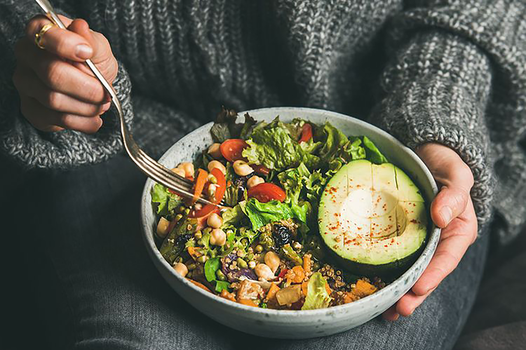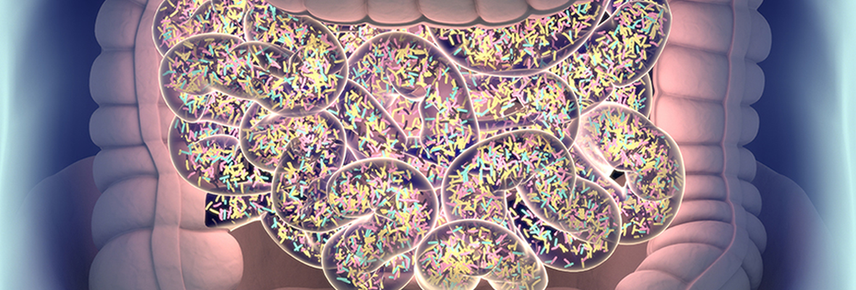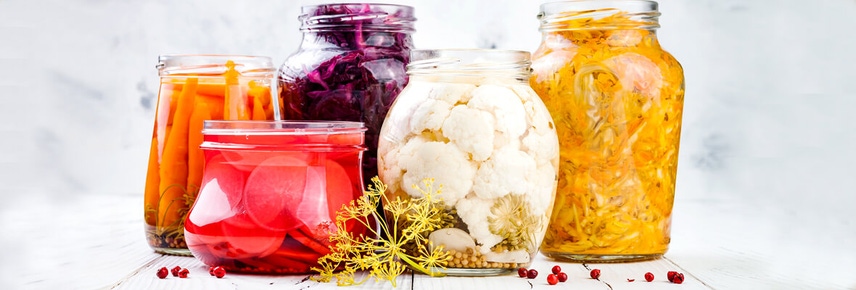
Why you need a healthy gut for good immunity
Gut health plays a crucial role in supporting our immune system. To put it simply, a healthier gut means you have a better chance of warding off bugs and germs. But why?
Our immune system and our gut microbiota (the bacteria in our gut) work together to create our body’s first line of defence against invaders – preventing harmful bacteria, or pathogens, from living in our gut. In fact, the majority of our immune cells actually live in our gut and help shape the composition of bacteria in our gut.
Our gut bacteria talk to our immune cells, “training” them so they can identify what is a dangerous invader, like a virus, from what is a friendly substance, or even our body’s own cells and tissues.
This “training” also helps to regulate our immune system’s responses, so our immune system doesn’t over-react. We want our immune system to be in balance, springing into action if we catch a cold, but not going into defence-mode against substances like a new food or pollen. It’s these types of extreme reactions that have been linked to allergies or autoimmune diseases.
Our gut bacteria also digests our food, breaking it down into nutrients and metabolites that help trigger a range of functions in our body that are important for good immunity. This includes telling our body how to fight harmful pathogens, stopping the growth of pathogens, and helping to manage inflammation.
This is just the tip of the iceberg. We are only just beginning to understand the role of the gut microbiota in overall good health and in maintaining a healthy immune system.
We do know that the association between a healthy gut and a healthy immune system remains throughout our lifetime. If the health and diversity of our gut bacteria declines, or is out of balance, it can throw our immune system out of balance too. As we get older the diversity of our gut bacteria also naturally declines and can impact our immunity. This makes it even more important to look after our gut as we age.
So how do you keep your gut bacteria diverse and healthy?
Living in the human gut are 100 trillion resident micro-organisms, mostly bacteria. Collectively, these are called the gut microbiota.
A healthy gut is one with a diverse, rich and even mix of different micro-organisms. That means having many different species of bacteria and a relative abundance of each. When there is high diversity of bacteria, our gut is healthy and resilient.
Positive changes in the diversity of gut bacteria have been shown to benefit the immune system, heart health, body weight, and reduce risk of autoimmune diseases, inflammatory bowel disease and inflammatory skin disorders like eczema. Gut health has also been linked with improved mental health, and with lower rates of anxiety and depression.
The food we eat has a big impact on the range and type of bacteria in our gut. Diet is thought to be responsible for around 57% of the variation in our gut bacteria, compared with only 12% for genetics.
Eating a variety of plant foods is the best way to increase diversity and improve gut health. Research shows a change in diet can influence the make-up of our gut microbiota quickly. Eating a bowl of a high fibre breakfast cereal every day has been found to have a positive effect on the gut bacteria within 3 weeks, with the gut health benefits lasting for at least a year.
So what foods are best for a healthy gut?
Eating for a healthy gut doesn’t need to include expensive supplements or hard to get foods. It’s really as simple as eating a varied, plant-based diet that’s high in fibre. Here’s a few easy-to-get, budget foods that are stand outs for good gut health:
Wholegrain breads and cereals
Foods high in whole grains and cereal fibre help create a healthy gut by increasing diversity of gut bacteria and providing the prebiotics to fuel them. Wholegrains and cereal fibre contain resistant starch and soluble fibres that are digested, or “fermented”, by the gut bacteria, producing metabolites called short chain fatty acids.
These short chain fatty acids assist chemical reactions in the body that reduce inflammation, stop the growth of many pathogens and increase the absorption of some nutrients. On the flip-side, a diet low in these important fibres has been shown to lower diversity of gut bacteria, increase susceptibility to infections and can trigger some negative immune responses.
Fruit and vegetables
Like wholegrains, fruits and vegetables also contain fibres and prebiotics that feed the gut bacteria.
High fibre vegetarian and vegan diets have been shown to create a more diverse range of beneficial bacteria and a more stable environment in the gut, than diets that include a high amount of meat (and may also be lower in fibre).
As well as fibre, fruits and vegetables contain powerful plant compounds that help to increase diversity of bacteria. Specifically, the polyphenols in plant foods increase Bifidobacterium and Lactobacillus – gut bacteria that provide anti-pathogenic and anti-inflammatory effects.
Next time you head to the supermarket add these budget friendly and naturally high in prebiotics fruit and veggies to the list – asparagus, onions, cabbage, apples and pears. Grab some chickpeas and tree nuts while you are there too.
Probiotic foods
We’ve covered off that prebiotics are what fuels or feeds the bacteria in the gut. Probiotics are beneficial live bacteria or yeasts found naturally in the gut and in some foods.
So, while we can increase the diversity of gut bacteria by feeding them well with prebiotics, we can also add more bacteria to our gut with probiotics. This doesn’t require supplements. Probiotics are found in some yoghurts and fermented plant-foods like sauerkraut, kimchi and pickles, and fermented drinks such as kombucha and kefir.
As well as eating a plant-based diet there are a few other things we can do to look after our gut. This includes drinking plenty of water, exercising regularly, ensuring we get enough sleep, and keep your stress in check.
Check out our immunity support recipe collection, featuring easy and nutritious every day recipes.

The latest nutrition advice, plus health and wellness tips delivered to your inbox monthly

